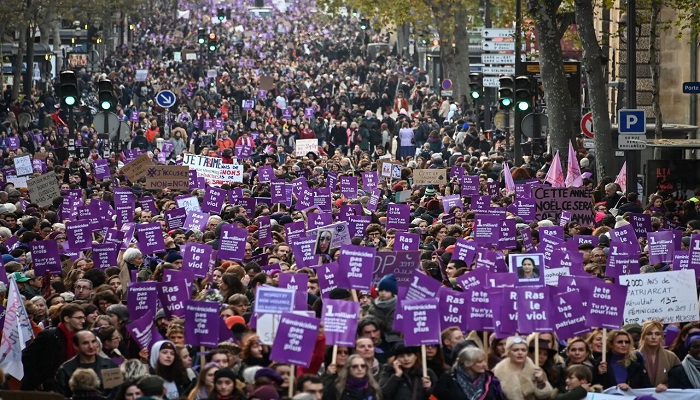PNN – Violence against women is a global phenomenon that does not fit within geographical or religious boundaries; however, what is thought-provoking and worrying is not the mere occurrence of violence, but the way it is narrated and reflected in the global mainstream media, especially Western media.
According to the report of Pakistan News Network, every time a bitter incident against women occurs in Iran or some Islamic countries, headlines fill the media space with lightning speed. From “institutionalized violence in the Islamic Republic system” to “backward Islamic culture,” they all enter the news narrative without the slightest hesitation. In these narratives, not only the perpetrator, but the entire political, cultural, and religious structure of the country is targeted; as if an individual tragedy is evidence of the condemnation of the entire system.
But when a woman is the victim of violence in the heart of Europe, or in America, the story is told differently. The media, with exemplary caution, portrays the perpetrators as “psychotic criminals,” “people with troubled backgrounds,” or “men damaged by emotional relationships.” An incident that is interpreted as a “structural problem” in Iran is reduced to a “personal incident” in the West; no one talks about “degenerate Western culture,” “misogynistic capitalist system,” or “patriarchal policies of liberal governments.”
Read more:
Pakistan in the process of sending a delegation to the US with Trump’s tariff agenda
For example, in the last days of March 2025, Italy witnessed two heartbreaking cases of femicide. Sara Campanella, a 22-year-old student, was stabbed to death in the city of Messina by a fellow student who had been stalking her for a long time. Just a few days later, the body of another 22-year-old, Ilaria Sola, was found inside a suitcase in a valley near Rome; the killer was none other than her ex-boyfriend, who had hidden the body after the murder.
Although these tragedies were reflected in the Italian and even international media, none of the news coverage mentioned “Western patriarchal culture” or “the deviant and ineffective social and cultural policies of the Italian government.” No media outlet linked these crimes to the structure of the Western political or cultural system; they were simply referred to as “individual murders” and “personal tragedies.”
The West cannot consider itself a pioneer in women’s rights, while even in its most advanced countries, the statistics of rape, femicide, and domestic violence are skyrocketing. What threaten women are not simply some mistaken Eastern traditions or false religious prejudices, but sometimes immorality, loneliness, consumerism, and the breakdown of social and cultural bonds in modern Western societies.
Violence against women must be condemned, but this condemnation must be based on justice and realism and not on personal taste; some countries should not be attacked more simply because they are not dependent on the wrong cultural models of the West, and others should not be absolved of responsibility with justifications such as “individual error.”
From this perspective, as long as narratives are told through the political lens and ideological interests of the West, not only will the truth be lost, but women around the world will remain victims of media injustice and double standards that are not aimed at justice, but rather a tool in the service of Western power and domination.

